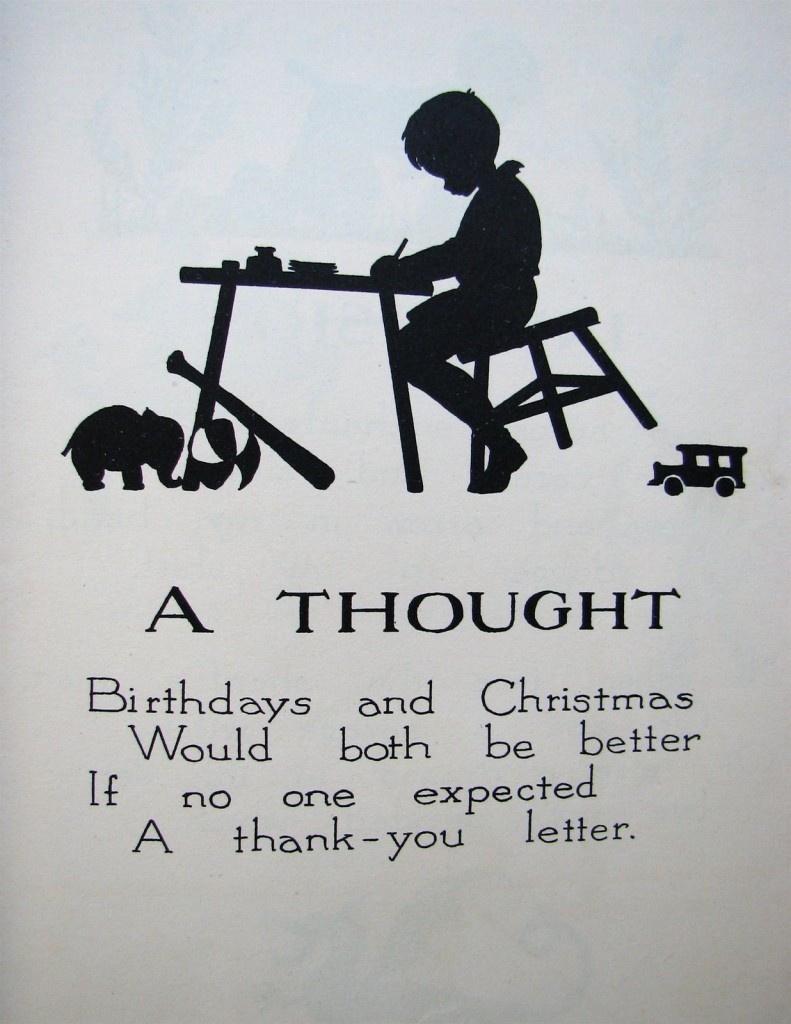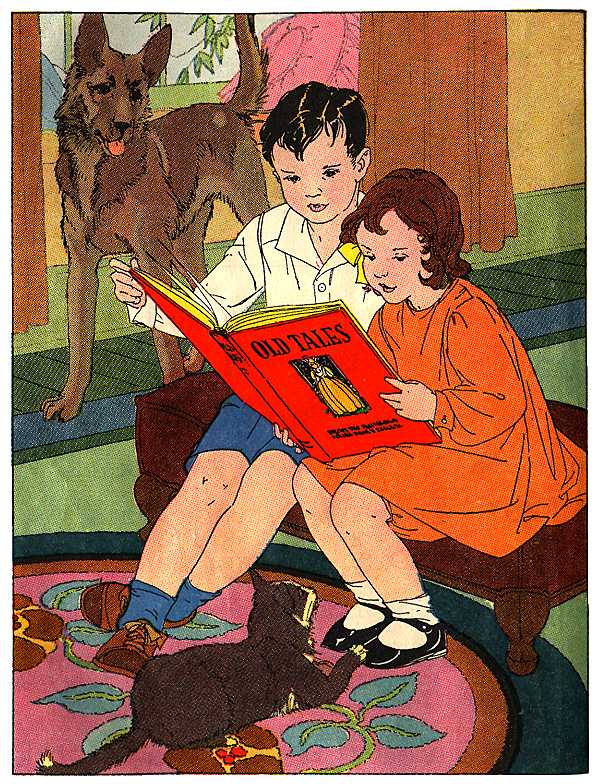Mark Steyn revisits the subject of Kinder Surprise eggs, the chocolate-wrapped toys popular in much of the rest of the world but forbidden under a distinctive U.S. law which bans the “embedding of non-nutritive items” in confectionery. According to the Department of Homeland Security, border agents confiscated more than 25,000 of the prohibited treats in more than 2,000 seizures during one recent year. Earlier here (Steyn: “The real choking hazard is the vise-like grip of government”), here, etc.
Posts Tagged ‘Mark Steyn’
Free speech roundup
- “Money spent trying to spread a political message is speech, whether you like the message or not.” [Michael Kinsley on McCutcheon v. FEC, earlier]
- “Letter: Ken Avidor on Being Silenced By a Defamation Suit” [Romenesko]
- “Canada’s first Twitter harassment trial has taken a strange twist.” [Christie Blatchford, National Post]
- In union leader’s defamation suit, Philadelphia court orders anonymous commenter unmasked [CBS Philly]
- New Jersey ruling letting parents be sued over kids’ Facebook posts will chill speech [Hans Bader/CEI, earlier]
- More dispatches from Michael Mann-Mark Steyn litigation showdown [Steyn, Charles Cooke] Bonus: Steyn on Andrew Bolt case in Australia and on Nevada protests’ “First Amendment Area” (“The ‘First Amendment Area’ is supposed to be something called ‘the United States’.”)
- “True-crime author Ann Rule’s suit against Seattle Weekly tossed” [KING]
February 8 roundup
- Cleverer approach NFL might have taken in “Who Dat” affair [Schwimmer, HuffPo, earlier here, here, etc.]
- Justice Anthony Kennedy: influence of unionized prison guards in passing California’s three-strikes law “sick” [LA Times]
- Federal prosecutors going after poster designer Shepard Fairey for untruth in civil lawsuit? How strange is that? [Kennerly]
- Plaintiff in complaint against Mark Steyn before Canadian rights tribunal boasted of having “increase[d] the cost of publishing anti-Islamic material” [NRO “Corner”; earlier here, here, here, etc.]
- Federal jury rejects wrongful birth suit against Elkton, Maryland obstetrician [Miller, more on wrongful birth]
- Forced-reincarnation suit against Oprah Winfrey dismissed, George W. and Laura Bush off hook too [WV Record]
- “How to Report the News”: funny plug-and-use TV reporting template [YouTube/Charlie Brooker, Newswipe, UK]
- “Virginia Legislators Kill Bills to Mandate Child Support for Adult College Students” [Hans Bader/CEI “Open Market”, earlier here and here]
November 12 roundup
- Judge cites Oregon elder abuse act in barring animal rights activists from harassing elderly furrier [Zick, Prawfsblawg]
- After fraud accusations against Fort Lauderdale lawyer Scott Rothstein, politicos race to return his many donations [NYT, AmLaw Daily,
DBR and more, Ashby Jones/WSJ Law Blog and more (Ponzi investments could exceed $1 billion, per FBI)] - Ontario court ruling may invite U.S. class action lawyers to take on more projects in Canada [Kevin LaCroix]
- “Mississippi Cardiologist Won’t Go to Prison for Online Dating” [Balko, Freeland]
- Manuscript in the mail: “Kings of Tort”, Alan Lange/Tom Dawson book on Dickie Scruggs and Paul Minor scandals, which now has its own website and will go on sale Dec. 2;
- A “cultural institution destroyed” in Louisiana: more on proposed FDA ban on raw oysters [NYT, earlier]
- Update on Google Books settlement [Sag, ConcurOp]
- Mark Steyn on the Zack Christie case and other annals of knives-in-schools zero-tolerance [NRO, Steyn Online via Skenazy]
CPSIA: “What’s so sad is that books aren’t dangerous”
Excellent article today on libraries, books and CPSIA in one of Texas’s leading newspapers, the Fort Worth Star-Telegram.  It confirms, among other things, that the big Half Price Books chain has made a policy of pulling pre-1985 books from its shelves, as well as more recent books that contain various kinds of embellishments and special features. If you happen to know an editor with the New York Times, the Chicago Tribune or one of the other big media outlets that are still utterly ignoring the crisis, this makes a good clip to send them, just to let them know that 1) what’s going on is only too real; and 2) they’re being scooped repeatedly by other journalists, just as the Boston Globe scooped them last week on the resale story.
It confirms, among other things, that the big Half Price Books chain has made a policy of pulling pre-1985 books from its shelves, as well as more recent books that contain various kinds of embellishments and special features. If you happen to know an editor with the New York Times, the Chicago Tribune or one of the other big media outlets that are still utterly ignoring the crisis, this makes a good clip to send them, just to let them know that 1) what’s going on is only too real; and 2) they’re being scooped repeatedly by other journalists, just as the Boston Globe scooped them last week on the resale story.
Also on the library issue, there is good coverage in the Zanesville, Ohio Times Reporter (a disproportionate amount of the good library coverage has come from the state of Ohio, which I suspect must be a tribute to some energetic library people there). The American Library Association has a wiki reiterating (at present) that association’s advice to members not to throw out pre-1985 books: “If you feel you must remove books from circulation, please store them until rulings are clearer!”. In her latest roundup, Deputy Headmistress describes how her own local library is boxing up many books that are likely to have been printed after 1985, because their copyright date falls before then; it is a common practice for children’s books to list only a copyright date even if they were printed many years later. So at that cautious library, at least, the law’s effects are even more drastic than one might have assumed.
Darwin Central, which took out after the offending Snopes.com on the books issue a couple of weeks ago, follows up today with a post entitled, “Snopes Defending the Book Burners”.  Linda L. Richards at January Magazine was among those misled by the Snopes slant. In a wide-ranging CPSIA roundup last month (worth reading in its entirety), Punditry by the Pint had wise advice: “This might be one of the cases where it would be good to read up on Snopes’ False Authority Syndrome page.” A visit to the Snopes page in question indicates that it now carries a “Last Updated” date of February 19, which indicates that it has been changed since we last had occasion to discuss it; at a brief glance, some of the dismissive language I and others found so objectionable seems no longer to be there, though it has not been replaced by language that’s actually cogent or up-to-date. Someone might want to do a before-and-after comparison using the Wayback Machine.
Linda L. Richards at January Magazine was among those misled by the Snopes slant. In a wide-ranging CPSIA roundup last month (worth reading in its entirety), Punditry by the Pint had wise advice: “This might be one of the cases where it would be good to read up on Snopes’ False Authority Syndrome page.” A visit to the Snopes page in question indicates that it now carries a “Last Updated” date of February 19, which indicates that it has been changed since we last had occasion to discuss it; at a brief glance, some of the dismissive language I and others found so objectionable seems no longer to be there, though it has not been replaced by language that’s actually cogent or up-to-date. Someone might want to do a before-and-after comparison using the Wayback Machine.
Also on books, children’s book author and editor Carol Baicker-McKee has a lovely followup to her excellent post of a day earlier, describing some of the kinds of older children’s books (of uncertain copyright status, too “quiet” in their themes to attract reprint interest from publishers) that might face a bleak future. She admires silhouette art, a feature of many midcentury children’s books (like the 1941 Marcella Chute volume from which this illustration is taken) but which is uncommon today.

Baicker-McKee has devoted more thought to the economics of children’s publishing than have most of us, and she writes beautifully of what is at risk. Ed Driscoll also has some to-the-point observations at Pajamas Media, where he quotes Mark Steyn: “A nation’s collective memory is the unseen seven-eighths of the iceberg. When you sever that, what’s left just bobs around on the surface, unmoored in every sense.”
There are other news stories I haven’t gotten to — in particular, the Wall Street Journal’s important reporting on $1 billion-plus (at least) in stranded inventories, much of which may be headed for landfills, and the news of the sudden 40% drop in the stock price of well-known kids’ retailer Gymboree as it was forced to take massive inventory write-offs. I’ll have to get to those at a later date, however, as an unrelated deadline is going to be absorbing much of my attention over the next few days.
CPSIA chronicles, February 26

- UPDATE 5:45 p.m. Eastern: Well, that was quick. A source reports that Congressional staffers hastily announced that they’re canceling the hearing next week and that the idea is “not likely to ever be brought back”. Someone must have realized that letting people from around the country get in front of a microphone and talk about the effects of this law would not exactly do wonders for the image of Henry Waxman, Public Citizen, PIRG, or Consumer Federation of America. More: Rick Woldenberg confirms cancellation/disinvitation.
- A prime objective for critics of the Consumer Product Safety Improvement Act in recent weeks has been to obtain a hearing on Capitol Hill that might focus lawmaker and press attention on the law’s many unexpected and harmful effects. Now it looks as if that might be happening. Rick Woldenberg:
I have been invited to testify before the Subcommittee on Regulations and Healthcare of the House Committee on Small Business next Thursday. The purpose of this hearing is to explore Small Business issues related to the CPSIA. The Subcommittee is still looking for small businesses to testify. … If you are motivated to testify, you may want to reach out to the Subcommittee staff to volunteer, or if you have a Congressman on the Subcommittee, contact their Washington office urgently. …
- Relatedly, Whimsical Walney, whose time seems to have been in part freed up for blogging by the CPSIA-induced shutdown of her Bay-Area-based children’s line, offers some advice here and here on how to talk with lawmakers about the act.
- If you still haven’t taken a look at it, Daniel Kalder’s excellent BooksBlog entry in The Guardian (U.K.) on CPSIA and older books, which quotes from my City Journal article, is here. It’s drawn attention around the world, including places like France, Italy, and Romania.
- Speaking of books, America’s libraries appear to have dodged catastrophe for now with the help of the American Library Association’s (understandable under the circs) last-minute embrace of the position that unless someone announces otherwise, it’s going to assume the law doesn’t apply to library stacks or circulation (earlier; commentary on the shift, Deputy Headmistress and Rick Woldenberg). Thus: Cincinnati Enquirer (“We’re hopeful saner heads will prevail and they’ll exempt us,” says Emily Sheketoff of the ALA), Middletown (Ohio) Journal, Brown County, Ohio, News-Democrat.
So it seems to be mostly the librarians who are the most literal-minded and obedient about following guidance from high government authorities, or who are most legally risk-averse, or something, who are taking drastic steps like tarping over their pre-1985 stacks or planning to discard the volumes entirely or excluding older kids’ books from their used-book sales (in which case they’ll wind up….where?). Esther at Reading Loft/Design Loft has been picturing how libraries will look if they can’t make an exemption stick. And I didn’t notice it when it ran last month, but Annoyed Librarian had a funny rant at Library Journal about the law. Perish the thought, of course, that any library might ever want to acquire a pre-1985 book for kids’ use. - Popular conservative talk host Hugh Hewitt has continued his coverage of the law. Per one transcript, he discussed it with star columnist Mark Steyn who knew about the youth motorsports debacle:
In my little corner of New Hampshire, every 12-year old boy loves taking an ATV, loves riding it around up in the hills. And the idea that the lead in it is going to cause that kid to keel over, is preposterous. This is government by insanity…
On the other hand, Mark Riffey passes along word that popular talker Glenn Beck doesn’t plan to cover the issue because “there’s no public outcry” (a paraphrase second-hand of what might be a staffer’s view, or his, it’s not clear). What? Does he restrict his reading diet to the New York Times?
- Wacky Hermit at Organic Baby Farm is angry: “When you have to consult a lawyer before you hold a church benefit sale, you are not in America.” (some rude language).
- In the first-linked item above, Woldenberg also reports on an announcement by the Consumer Product Safety Commission’s chief of enforcement, Gib Mullan, that the commission intends to shift its enforcement methods in a more punitive direction, handing out many more penalties than previously in order to achieve more deterrent effects on businesses of all sizes. This is well in line with the clear guidance the commission has been given by Henry Waxman and colleagues in Congress. Next Thursday, if those planning the hearing do their jobs right, many in Congress might for the first time hear some voices that no one thought to consult when the law hurtled toward passage last summer. [REPEATING THE UPDATE: Hearing reportedly canceled.]

Public domain images: Grandma’s Graphics, Mabel Betsy Hill and Elson’s Basic Readers.
Update: B.C. tribunal dismisses Mark Steyn case
The provincial government of British Columbia will not punish the magazine Maclean’s for running an article exposing Islam to asperity (coverage at Steyn’s site). Jay Currie, via Steyn at NRO “Corner”:
…the way I read this decision is that it imposes a two part test a) are your words offensive and hurtful? b) are you a major media organization with deep pockets represented by serious lawyers. If “a” and not “b” you are a hate monger; if “a” and “b” you are engaged in political debate.
Commenter “Binks” at FreeMarkSteyn:
The ordinary Joe or Jane Canuck is no safer today than last year when this all started. The Human Rights Commissions have probably learned only two things: the internet bites back when bloggers get rolling on an issue; and don’t chew on famous and well-connected targets.
July 3 roundup
- Texas probate and estate lawyers seldom prosecuted when they steal funds, clients told they should just sue to get it back [Austin American-Statesman investigation]
- About a third of the way down the center strip, then just a bit to the right, you’ll find us on this much-linked map of the campaign season’s most influential websites [Presidential Watch ’08]
- Given the enormous liability exposure, would a doctor rationally want a major celebrity as a client? [Scalpel or Sword via KevinMD]
- The loser-pays difference: Canadian franchisees pursue failed class-action claim against sandwich shop Quiznos, judge orders them to pay costs of more than C$200,000 [BizOp via ClassActionBlawg]
- Annals of extreme incivility: judge condemns “heartless attack” at deposition on opposing lawyer’s pin honoring son killed in Iraq [Fulton County Daily Report]
- You keep an open wi-fi connection at home and your neighbor uses it to download music improperly. Are you an infringer too? [Doctorow via Coleman]
- As you’ve probably heard if you read blogs (but maybe not otherwise), one Canadian “human rights” tribunal has dropped action against Mark Steyn and Maclean’s; another still pursuing case [SteynOnline]
- Prison-overcrowding lawsuit could lead to early release of 27,000 California inmates [TalkLeft]
- “He absolutely would’ve gotten this DOJ job but for the anti-liberal bias … and he can’t land any other jobs?” [commenter KenVee on lawsuit over politicized Department of Justice Honors/Intern programs, Kerr @ Volokh, background]
June 10 roundup
All-free-speech edition:
- Christiansburg, Va. land developer Roger Woody sues local bloggers and two other critics for more than $10 million for speaking ill of big dirt pile on one of his properties [Roanoke Times, editorial; more on Woody’s dealings]
- Lots of developments on free speech in Canada: trial begins in Vancouver in complaint against Mark Steyn and Maclean’s over book excerpt critical of Islam [his site]; after defending speech-restricting network of human rights tribunals, Conservative government in Ottawa now says it will take another look [Ezra Levant, with much other coverage including favorable nods from Toronto literati]; Alberta tribunal orders conservative pastor to “cease publishing in newspapers, by email, on the radio, in public speeches, or on the Internet, in future, disparaging remarks about gays and homosexuals.” [Levant; Calgary Herald; Gilles Marchildon, Egale.ca] (more, Eugene Volokh)
- Brief filed for Kathleen Seidel in her resistance of abusive subpoena, with assistance of Public Citizen [her site, theirs, and our comment section]; Seidel is among autism bloggers profiled in NY mag [w/pic]; profile of thriving Boston “vaccine injury” law firm” Conway Homer & Chin-Caplan [NLJ; Seidel’s critical comments on that firm]
- Views critical of religion unlawful unless expressed in respectful and non-scoffing way? Lots of precedent for that approach, unfortunately [Volokh on Comstock]
- Score one for fair use: judge denies Yoko Ono preliminary injunction against creationist film’s use of 15 seconds of John Lennon’s “Imagine” in context implicitly criticizing song’s point of view [Hollywood Reporter, WSJ law blog, Timothy Lee/Ars Technica]
Mark Steyn on the suing-OPEC bill
“[Then Congress] went off and passed by 324 to 82 votes the so-called NOPEC bill. The NOPEC bill is, in effect, a suit against OPEC, which, if I recall correctly, stands for the Oil Price-Exploiting Club. “No War For Oil!,” as the bumper stickers say. But a massive suit for oil — now that’s the American way! …
“Congress hauls Big Oil execs in for the dinner-theatre version of a Soviet show trial and then passes irrelevant poseur legislation like the NOPEC bill. Plus ca change you can believe in, plus c’est la meme chose. The NOPEC bill is really the NO PECS bill — a waste of photocopier paper passed by what C. S. Lewis called ‘men without chests’.” (“Fill Her Up with Hot Air”, National Review Online, May 24)(via Lindgren @ Volokh).
